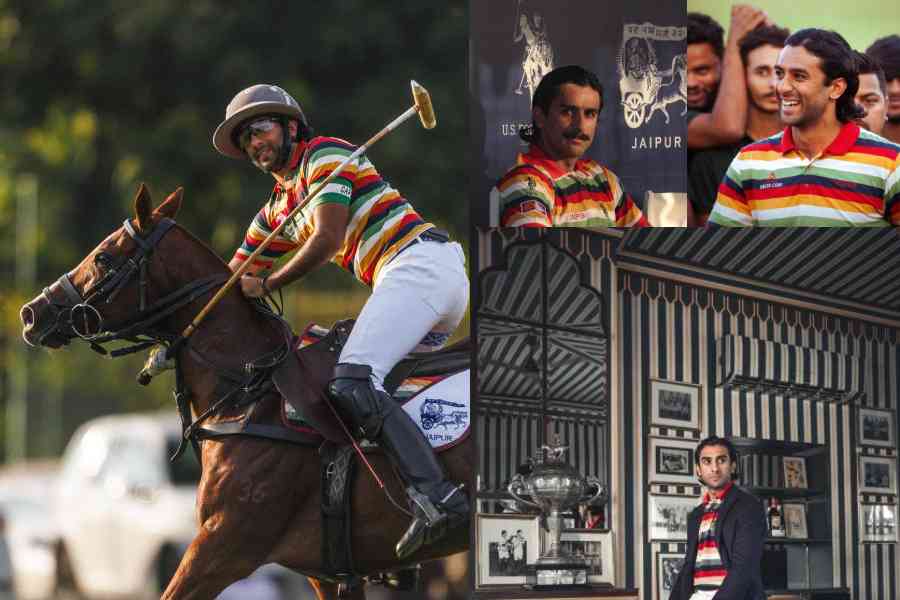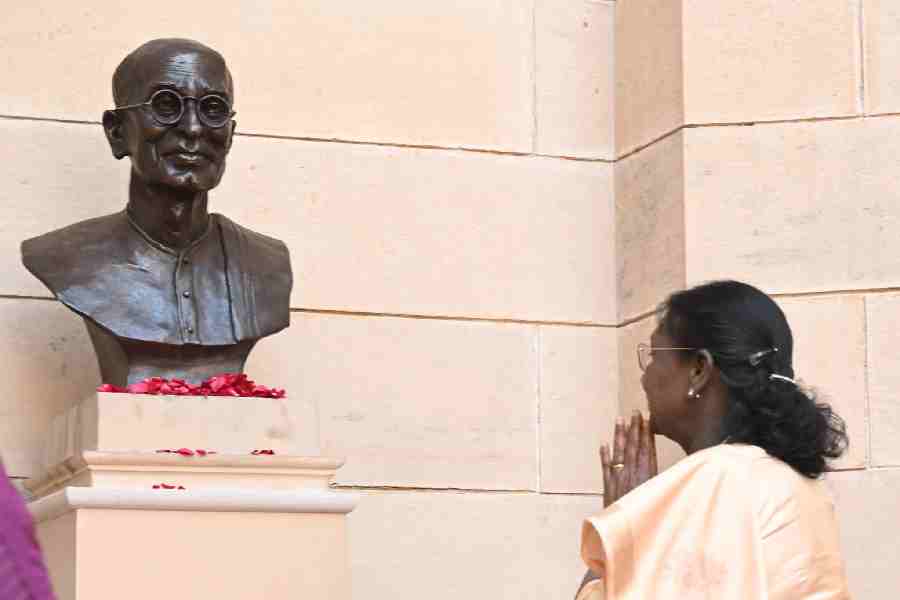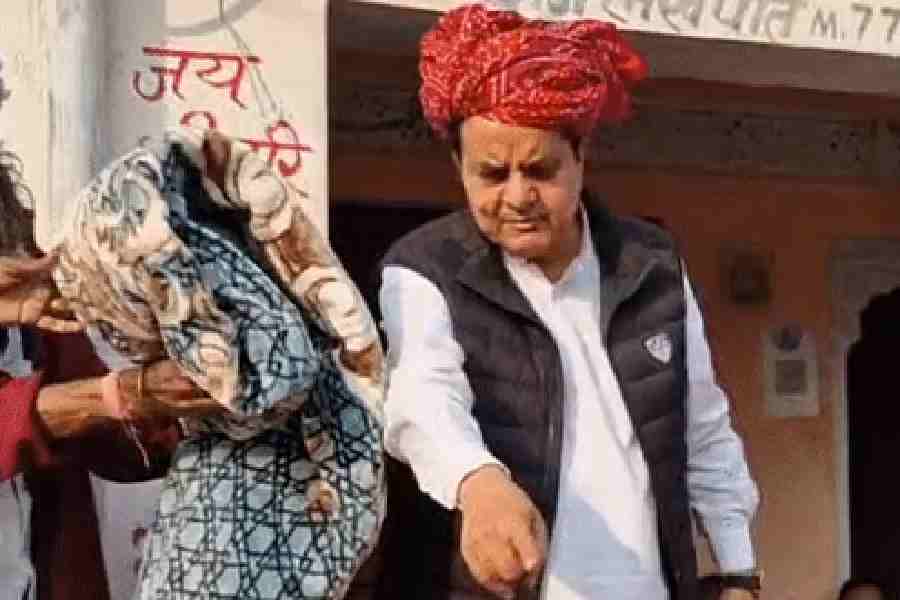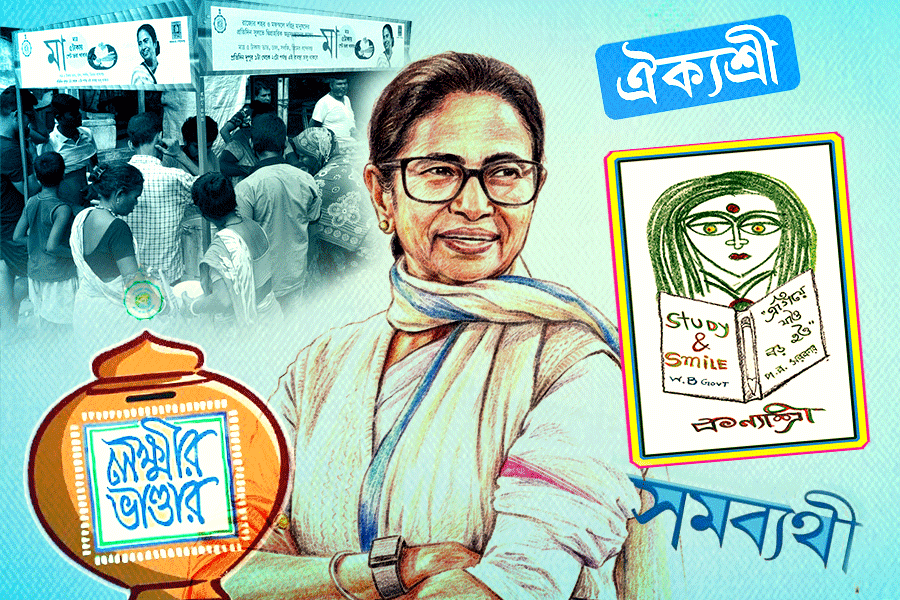Padmanabh Singh, or Pacho as he is fondly addressed, has a distinct charm about him. The young scion of the erstwhile royal family of Jaipur is quite the toast of the town, can hold a room, and is polite and humble. Among his foremost passions is polo, the love for which he has inherited. He began playing the sport at 12 and started competing professionally when he was 13. And just a little more than a decade later, he has already notched up several laurels, including “about 100 titles” in various competitions. He has represented India in various international tournaments, including the Jaipur Gold Cup and the Cartier Queen’s Cup. He has also led the Indian national polo team during their visit to Hurlingham Park in 2017. He was crowned captain of the Indian national polo team in 2017, the youngest to shoulder that responsibility, and captained his teams at XI and XII FIP World Polo Championships in 2017 and 2022 and led the Rajputana International Polo Team to the victory stand at The Tournoi Maharaja De Jodhpur Championship 2023 in Morocco.
Padmanabh is now an executive committee member (Rajasthan Zone) of the Indian Polo Association. All this in his 20s. And, he has big dreams for the sport that he lives and breathes.
We caught up with Padmanabh at the outset of the polo season in Jaipur. He is the captain and patron of the Jaipur Polo Team that was founded by his great-grandfather, Man Singh II, in the early 1900s. We chatted about what the game meant to him, the legacy of the sport, and some of his favourite sporting stars. Excerpts.
How has the season started?
The season started very well. I had a little minor injury personally to contend with, which is thankfully now a lot better. But overall, it really is always such a pleasure to play for the Jaipur Pachranga with the love and support that we usually get from the local fans and the crowd. As I always say, there’s a lot of emotion attached to these colours that is very obviously visible here in Jaipur.
So, I’m grateful to have the chance every day to represent this beautiful city and to be able to play this beautiful sport over here in Jaipur.
Overall, there’s a lot of excitement for both the Jaipur Polo Team but also for the Indian Polo season. One of the things that we’ve been wanting to achieve for many years is to start doing live streaming. We haven’t quite got there yet. But for the first time, polo was on Star Sports (Breakaway: Polo in India), where a documentary was aired with the help and support of USPA (U.S. Polo Assn. of which he is the new global brand ambassador), who have been extremely generous towards our team but also the sport at large. So overall, positive signs for our team but also for Indian Polo.
How do you scout your players?
Well, polo is a very unique sport in that you have a handicap system. So not any four players can get together and make a team. Handicaps are almost like points or ratings. Each player has a rating. So, the handicap or the ratings of the four players have to total up to a number which is also equal to or lower than the number of the tournament that you’re playing. So, if let’s say we are playing an eight handicap tournament, which is an eight-point tournament, then the handicap of the four players can only total up to eight and no more.
So, the combos of the team therefore always change, but we always try to make an effort to have as many people represented from Rajasthan as possible. And, we always try and have one senior international player who, in the last three years or so, has been this South African professional called Lance Watson, who’s an incredible player and a thorough gentleman, who’s been actually instrumental in the last few years of our polo team. He’s also mentored a lot of young players who have been coming through the ranks over here in Rajasthan.
Why do you think the game hasn’t really caught on with the younger generation?
Well, I think firstly we need to realise that it’s nearly one of the oldest sports that has been played in a professional sense in our country.We consider this very much an Indian sport and India’s gift to the world. A sport that was discovered by the British in Manipur more than a 100 years ago and then popularised. So, there’s a huge history that our country has with the sport.
And the other thing to note is that polo was incredibly popular in our country back in the ‘30s, ‘40s, and ‘50s, and it went through a bit of a silent period since those glorious years. What is happening now is that there’s a re-emergence of the sport, and there are more people subscribing to the sport, not only as players, but also as spectators, fans, beginners, and sponsors.
However, I think that the key things that need to happen for a sport to really catch on are that it needs to be on TV. And I think that is one of the reasons why the screening was important for the sport, and hopefully, this can lead to a bit more of a regular sort of programme on TV.
Today, polo is played in a few cities only. But if we are able to stream it in high quality and bring it to people’s doorsteps across the country and the world, I think that will be the biggest kind of achievement that we’ll be able to make.
I always say that even if I did not play the sport, if I’d got the opportunity to see these horses once, I would become a fan. There are very few things in the world that are more beautiful than watching eight horses galloping up and down, in a lush green field, at 30 miles an hour, crashing into each other. I have a very strong sense of aesthetics. This is the epitome of beauty, elegance, skill and athleticism. So, I think we just need to get this information and these incredibly vocal visuals to people. And I think that should do the trick.
Now that you’re getting into polo administration, do you think that will also be your focus point to get the sport to as many people as you can?
Well, yes, certainly. My agenda for my role at the Indian Polo Association is really threefold, primarily, and then obviously, there are other elements.
The first change that I’d really like to bring about is that I’d like to encourage young participation. So, really target the academies and polo schools and find ways in which we can actually find more young people to take to polo.
Secondly, I’d like to get more ladies to play this beautiful sport. Our ladies of this country are making us proud across sectors, whether it’s sport or anything. And I really do feel that polo could do with more lady participation. It’s happening already. We’ve initiated a lovely fixture in Jaipur, thanks to my mother’s foundation (Princess Diya Kumari Foundation), which has really picked up and has become one of those games that girls across India, and also the world, now want to kind of participate in. Hopefully, this can lead to more such events where ladies can sustain a professional career in the sport. And thirdly, it’s streaming, to find ways in which we can actually start streaming our games.
Do you think that for the game to reach the masses, it needs to break out of its elite image?
Yes, absolutely. And I think that it’s absolutely untrue to say that polo is only for the elite. I absolutely don’t agree with that view. In fact, yesterday I was at the polo ground and I bumped into this elderly gentleman whom I’ve been watching. He said he’d been coming to watch polo since 1970. He said he was a bus conductor. He’s seen my grandfather, father and me play and was a huge fan. And so are all the other people in his village.
So, that just kind of reminds you that polo is for everybody. You know, it’s really not just for a small group of people. It really is a sport that gives happiness and joy to people from all sectors.
There are various ways in which you can associate with the sport. Formula 1 is such a famous sport these days, but not everybody can get in a Formula 1 car every day. Not everybody who watches cricket in this country plays cricket. So you don’t have to actually be a player to be associated with the sport. So while I do think that there are more and more academies and sponsors that are now encouraging people to take up the sport if they don’t have the means, I feel that that is not the only avenue of participation. There are so many other ways in which people can associate.
What’s a typical match day schedule like for you?
Well, it used to be very different until a couple of years ago, when I wasn’t working. At that time, my whole life revolved around polo. It’s a bit different now that I work as well. But of course, through my work, through whatever it is that I’m doing, wherever I am in the world, polo really is always in my mind. The sense of happiness and joy that this sport gives me it’s hard for me to sum up in words.
I try and train in the morning, maybe ride a few horses, do some drills. It’s always followed by a workout in the gym. An hour before the game, we’ll stretch, warm up, speak to the team, make a strategy, try and take the pressure off ourselves and get on a comfortable horse. I like to do a long warm-up before the game. Stick and ball, hit all your shots, open up all your muscles and then go into action.
Do you play any other sport to just keep that match fitness going?
Well, I actually try and play throughout the year. Today in Jaipur, we are fortunate enough with the facilities and the weather that we have here that we can play right from August till May. So the only time we’re not playing really is June and July. However, I actually do travel abroad, and I have a team that I play with in France that I’ve been doing for the last five or six years. And then I always go to Argentina once or twice for a month. And then I play a bit in England.
Various countries across the world have a great history with Jaipur and Jaipur’s polo. And as a gesture to mark this relationship, Jaipur had given these various countries something called the Jaipur Trophy. And we’re currently actually in the process of identifying all the clubs where they have this Jaipur Trophy, and hopefully revive these, where every summer we can take a team of young players from Jaipur that goes and tours all of these countries where you have the Jaipur Trophy. And, in addition to just the polo, we make a cultural event out of this. So, this way, we are able to use polo as a great tool of modern-day diplomacy, where we are able to promote India and all its colours at various venues through this beautiful gift that is polo that India has given to the world.
I’m an athletic person. Since I was young, I played every sport. And I love sport, something that I think is so important for everybody to not only engage with, but also continue to do. Some of the lessons that sport teaches you, of course, have a lot to do with physical growth, but also a person’s or child’s mental growth happens a lot through sport.
I think sport, most importantly, teaches you spirit and how important it is to have a positive spirit. I play cricket, football, tennis, squash, badminton, you name it. And I may not be as good at any of these, but I do very much enjoy partaking.
Did you naturally take to polo?
Well, I actually grew up on a polo field. There’s so much polo in Jaipur and in our family. All males in our family have been polo players. So I was actually always surrounded by the sport.
And even when we came back home, a lot of the stories and conversations were about polo. We’re surrounded by lots of polo memorabilia, whether that’s old photos, in fact, lots of old photos from Calcutta. Given that Calcutta was actually the most important polo venue until very recently, where everything from the Indian Open was played, and some of the most iconic games were played in Calcutta back in those days.
Eventually, when I went to boarding school, our school had polo there and I took to it like fish to water. I don’t know if I was a natural or not, but I fell in love with it immediately. It’s very hard not to love it.
Well, the first few times, of course, you don’t really know what to do, and it takes you a bit of time to get used to controlling the horse. But today, the joy and the sense of satisfaction that I get and the peace that I get when I ride a horse, not many things in the world come close to that.
Who are your icons across sporting disciplines?
Well, my great-grandfather, Sawai Man Singh (II), who was not only Rajasthan’s first rajpramukh, an ambassador for our country to Spain, a great reformer before Independence, incredible administrator, but he was also one of the world’s best polo players and somebody that I look up to very much for how he straddled the various worlds in which he lived and achieved success in almost all of those fields.
And in addition to that, I have a lot of respect for champions and winners across various fields. It’s not just talent or hard work or luck. It’s really a mixture of it all and so much more. So I really do try and idolise and study champions across different sports to see what the mentality is and how they’re able to achieve that. If you want me to name people, there’s the great (Novak) Djokovic, you have (Rafael) Nadal, you have (Lionel) Messi and (Cristiano) Ronaldo. It’s so interesting to study their achievements and how they’ve been able to do this and just stay like a notch above the rest. These people are just mentally superior.
Have sports and travel inculcated humility in you?
It really is a combination. I think the way you’re brought up and the learnings that you have at an early stage in your life really do make a huge impact on the way that you shape up eventually and how you live the rest of your life. And I consider myself extremely lucky and fortunate to have had the family that I have. You know, they brought us up with a lot of love, affection, respect, but also a huge sense of respecting everybody around you and the opportunities that one has, and to never take anything for granted. Since we were very young, we were taught the importance of loving people who sacrifice things for you or those who make things possible.
When you’re on a horse and when you’re on a field, you’re all equal, whether it’s you or a jawan from the 61st Cavalry or, you know, a businessman….
Also, perspective is really important… travelling around the world. And I just went to New York City recently and just to see that there’s a parallel universe that exists, and so much that’s going on around the world that really humbles you… going to cities like New York and even sometimes Mumbai.
We come from our beautiful little paradise, which is Jaipur. And, when one goes to these big mega cities and you realise how many lives are being lived, how many people are crossing paths with other people, and so many successes, so many losses, and so much hope, everything that’s going on. It’s very humbling.
What are your personal dreams?
I think I really have dedicated my life to the service of the city. And my personal dreams are very much intertwined with the dreams that I dream for this city. Everything that anybody in this family has done has always been to serve the city and its people. And I think that that will remain my own calling as well. But if you ask me about (my dreams), in a more selfish sense, I would say that, of course, the sport of polo and our Jaipur Polo Team. These are causes that are extremely personally relevant and important to me. And in a way, I think that this connects up with the dream that I have for Jaipur.










